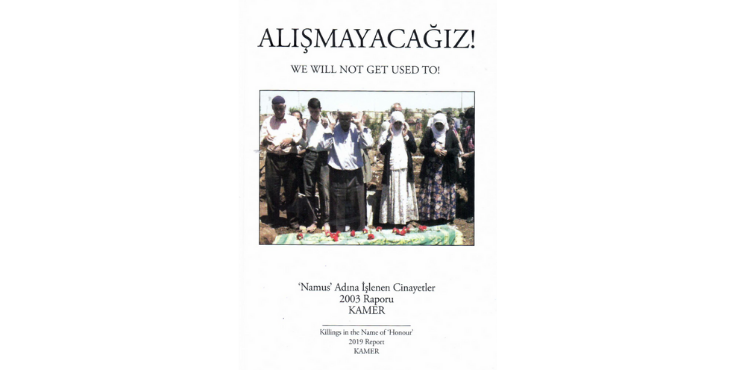WE WILL NOT GET USED TO!
Killings in the name of honour were there ali the time. They were ordinary news of our daily lives.
Most of us did not even wonder the story behind any of those killings. Because every one of us is the artefact of the violence culture. We lived as we are taught to memorise, as we are got accustomed to. We were accustomed to see and hear only those that we are asked to.
The most important thing that we had done by that project was to question
the things that we got used to.
We began to wonder what, why and how we are got accustomed to.
And we saw that to change our language and behaviors which are shaped since the day we were born by ali the elements of the vvhole system in collabo- ration, is the most critical thing that we had to do in order to get a cultural transfer mation.
Extrajudicial killings, murders in vvhich perpetrators are unknovvn, torture and ali other kinds of violence were sooner or later raised into the agenda, the perpetrators were punished though not before the law but with the curses in the consciences.
But societies became indifferent to the ‘killings in vvhich vvomen are victims’ and vvatched them from aside, though those kind of killings had a continuity throughout the history.
This report contains ali the vvorks vvithin the framevvork of “Prevention of
The Honour Killings and Creation of Social Sensitivity Project” those are realised by KA-MER in 2003.
We wanted to reveal ,the causes of “killings in the name of honour”, in which circumstances and hovvthey took place, the consequences of those killings and would-be Solutions by examining this problem from ali dimensions and share the knovvledge gained.
We hope this sharing will promote similar projects, create social sensitivity in relation with those killings vvhich are also extrajudicial killings, bring various deficiencies in attention and produce permenant Solutions in cooperation.
Most importantly, we want to play even a modest role in the process of founding the culture of non-violence.
Nebahat AKKOÇ
KAMER




 We Will Not Get Used To! click to read the book...
We Will Not Get Used To! click to read the book...